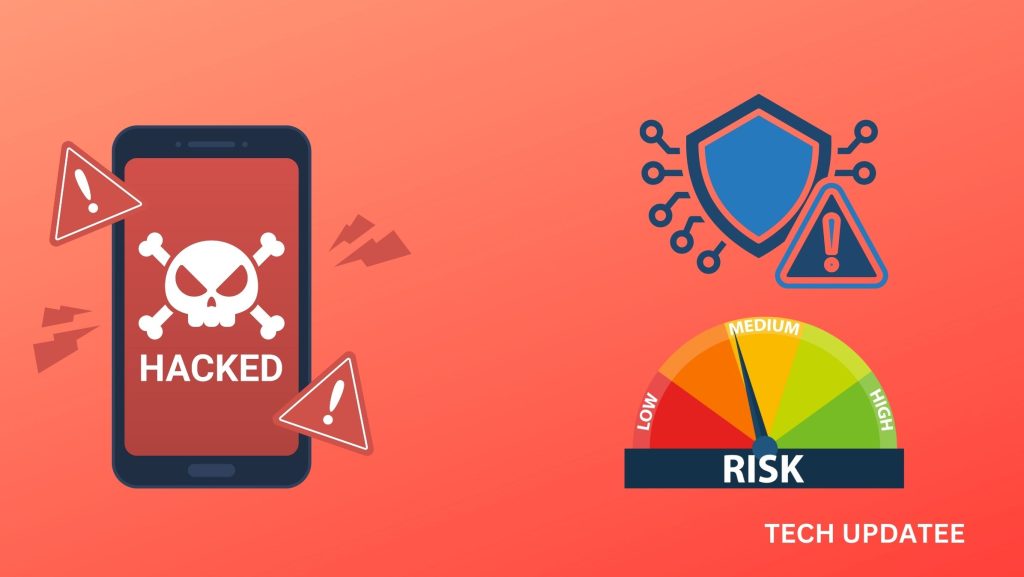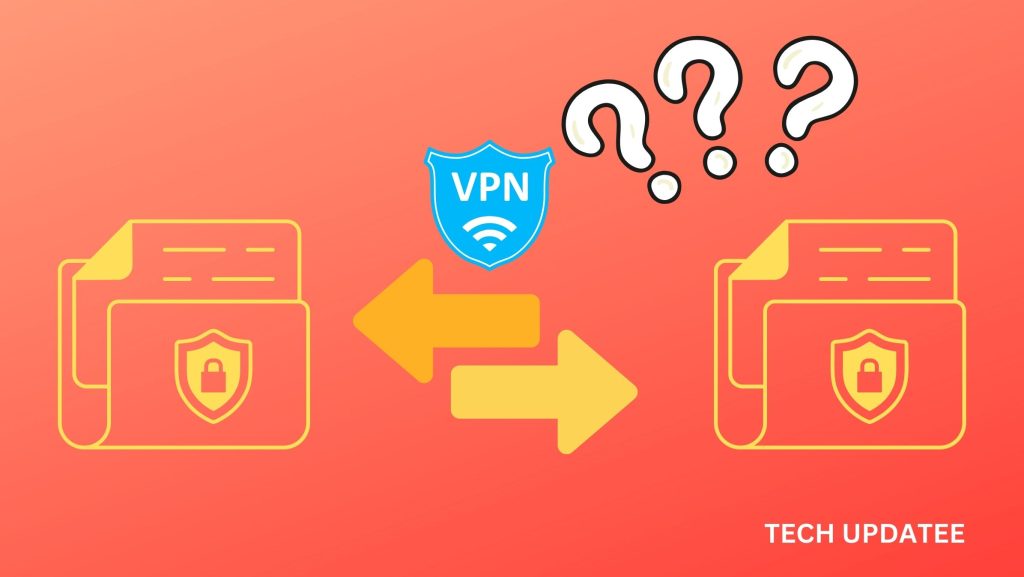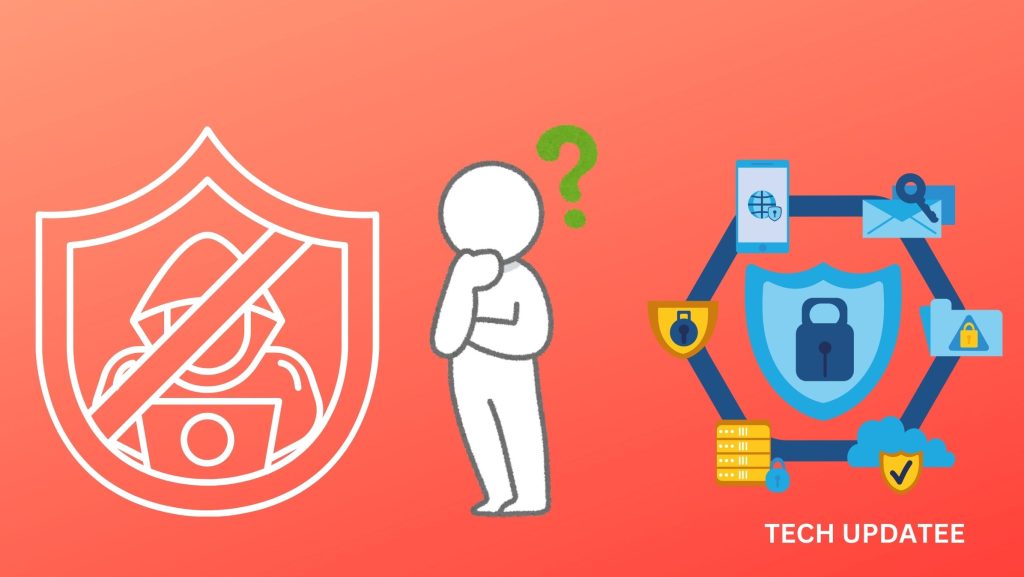Can VPN Prevent Hacking Have you ever wondered how hackers steal personal data and why cyber threats are increasing every year? With the rise of online fraud, identity theft, and data breaches, protecting your online activities is more important than ever. Many users turn to VPNs as a defense against hacking, but does it really work?
A [Can VPN Prevent Hacking] solution is designed to encrypt your internet traffic and shield your data from cybercriminals. But while VPNs are powerful security tools, they are not a complete solution to all hacking threats. In this article, we will explore how VPNs work, the types of hacking they can prevent, and their limitations in protecting your online security.
Contents
- 1 Understanding Hacking Risks—Common Cyber Threats Users Face Online
- 2 How a VPN Works—Basics of VPN Encryption and Tunneling
- 3 Does a VPN Prevent Hacking? – Exploring VPNs’ Role in Security
- 4 Types of Hacking a VPN Can Help Prevent
- 5 Limitations of VPNs in Preventing Hacking
- 6 VPN vs. Other Security Tools—Comparing VPNs with Antivirus, Firewalls, and Multi-Factor Authentication
- 7 Best VPN Features for Security
- 8 Choosing a Secure VPN Provider
- 9 Conclusion
- 10 FAQs
Understanding Hacking Risks—Common Cyber Threats Users Face Online

Hacking can take many different forms, such as virus attacks and phishing scams. Cybercriminals employ a variety of tactics to steal information, obtain unauthorized access, or monitor online activity. Man-in-the-middle (MITM) attacks, in which hackers intercept user-to-website connections, are among the most frequent risks. This may result in financial theft, personal data leaks, or even stolen login passwords.
Public Wi-Fi assaults pose a serious concern as well, as hackers take advantage of unprotected networks to obtain private data. Unaware of the risks, many individuals utilize free Wi-Fi in cafés, airports, and hotels. False Wi-Fi networks can be created by cybercriminals to fool users into connecting and unintentionally sharing their data. By encrypting connections, a [Can VPN Prevent Hacking] strategy makes it more difficult for hackers to intercept your data.
How a VPN Works—Basics of VPN Encryption and Tunneling

By building a safe, encrypted tunnel between your device and the internet, a virtual private network, or VPN, operates. A VPN hides your IP address and makes it more difficult for hackers to follow your online activities by routing your data through a remote server rather than your internet service provider (ISP).
A key component of [Can VPN Prevent Hacking] security is encryption. Protocols like AES-256-bit encryption, which is used by VPNs, jumble data into unintelligible representations that can only be decrypted by authorized parties. This gives sensitive data an additional degree of protection since even if a hacker were to intercept your transmission, they would be unable to decode the data.
Does a VPN Prevent Hacking? – Exploring VPNs’ Role in Security

While not a comprehensive solution, a [Can VPN Prevent Hacking] system can effectively thwart certain types of cyberattacks. VPNs mostly safeguard data while it’s in transit, which means they prevent prying eyes from listening in on your online activities. On public Wi-Fi networks, where hackers frequently target unwary users, this is extremely helpful.
VPNs do not, however, defend against malware that has been put on your device, phishing attempts, or keyloggers. A VPN cannot prevent a hacker from tricking you into installing dangerous software or clicking on a bad link. For this reason, it’s critical to use a VPN in conjunction with other cybersecurity measures like antivirus software and robust authentication techniques.
Types of Hacking a VPN Can Help Prevent
Man-in-the-middle attacks, in which hackers intercept online communications, are effectively prevented by VPNs. All traffic is encrypted when utilizing a VPN, rendering it unintelligible to hackers. Even if a hacker is monitoring your connection, they won’t be able to see your data.
ISP tracking and data spying can also be avoided using a [Can VPN Prevent Hacking] solution. User data is gathered by numerous ISPs and sold to advertisers. By hiding your online behavior, a VPN keeps ISPs and other parties from keeping tabs on your online activities. This is especially crucial for safeguarding private conversations and sensitive data like online financial transactions.
Limitations of VPNs in Preventing Hacking
Although they provide robust security, VPNs cannot take the place of an all-encompassing cybersecurity plan. The inability of a [Can VPN Prevent Hacking] setup to stop ransomware or virus attacks is one of its main drawbacks. A VPN won’t stop the infection if a hacker fools you into installing harmful software.
Another drawback is that social engineering attacks, in which hackers trick users into disclosing their passwords or personal information, are not prevented by VPNs. Phishing emails and phony tech help calls are examples of scams that rely more on human mistake than on weaknesses in networks. For this reason, using a VPN in conjunction with cybersecurity awareness and robust password management is crucial.
VPN vs. Other Security Tools—Comparing VPNs with Antivirus, Firewalls, and Multi-Factor Authentication
A VPN is only one component of cybersecurity. It’s critical to comprehend the distinct functions of each security product when evaluating [Can VPN Prevent Hacking] solutions against others. By identifying and eliminating malware, antivirus software shields your computer from harmful apps and corrupted files.
By filtering network traffic, firewalls, on the other hand, serve as barriers between your device and outside threats. Additional security is offered by multi-factor authentication (MFA), which requires more than just a password to access accounts. Although a VPN improves anonymity, for complete hacker protection, it is most effective when used in conjunction with these technologies.
Best VPN Features for Security
A [Can VPN Prevent Hacking] solution should have the following key security features:
| Feature | What It Does | Why It’s Important |
|---|---|---|
| Kill Switch | Disconnects internet if VPN drops | Prevents accidental data leaks |
| No-Log Policy | Does not store user activity | Ensures privacy and anonymity |
| DNS Leak Protection | Prevents ISP from tracking data | Keeps browsing private |
| Strong Encryption | Uses AES-256-bit encryption | Protects sensitive data from hackers |
Choosing a Secure VPN Provider
Not every VPN offers the same degree of security. Look for providers with a strong no-log policy, which means they don’t save your browsing history, while choosing a [Can VPN Prevent Hacking] service. This guarantees that nothing will need to be sent over, even if authorities ask for data.
Additionally, pick a VPN with robust encryption techniques and fast servers. Because they might sell user data or have lax security, some free VPNs might be dangerous. Purchasing a trustworthy paid VPN service that ensures privacy, security, and quick browsing speeds is the best course of action.
Conclusion
One essential tool for improving online security and privacy is a [Can VPN Prevent Hacking] service. VPNs guard against hacking threats including data spying, ISP tracking, and man-in-the-middle attacks, by encrypting your internet traffic. VPNs should be used in conjunction with other cybersecurity measures like firewalls, antivirus software, and multi-factor authentication, as they are not a comprehensive solution.
Select a trustworthy VPN provider with robust encryption, a no-log policy, and cutting-edge security features for the finest online protection. You may reduce the danger of hacking and protect your data from attackers by combining a VPN with wise browsing practices.
FAQs
Can all hacking efforts be prevented by a VPN?
No, a VPN can not stop malware infections or phishing schemes, although it can defend against some hacking techniques, including data interception and Wi-Fi attacks.
Does a VPN keep hackers away from passwords?
Indeed, a VPN encrypts data transfer, which makes password theft more difficult for hackers. Two-factor authentication and the use of secure passwords are still required, though.
Can a VPN be circumvented by hackers?
Hackers may occasionally attempt to take advantage of holes in VPN software. This risk is reduced by using a reliable VPN service that receives frequent security updates.
When using public Wi-Fi, should I use a VPN?
Yes, since a VPN encrypts your connection and keeps hackers from capturing your data, it is necessary when using public Wi-Fi.
Is it safe to use a free VPN?
Not all the time. Free VPNs could contain advertisements, offer less secure encryption, or log user data. For the highest level of security, it is preferable to utilize a trustworthy commercial VPN.
